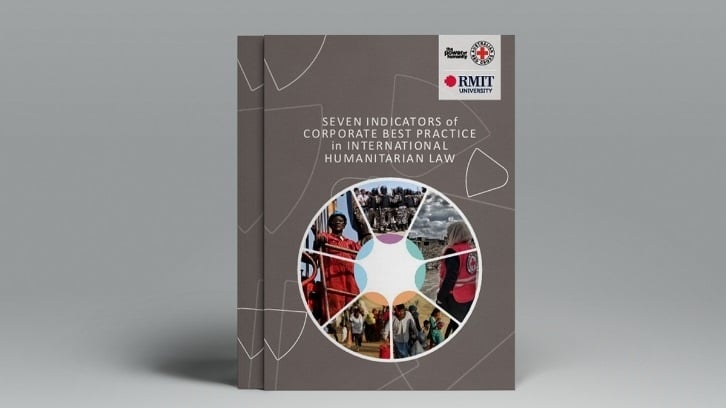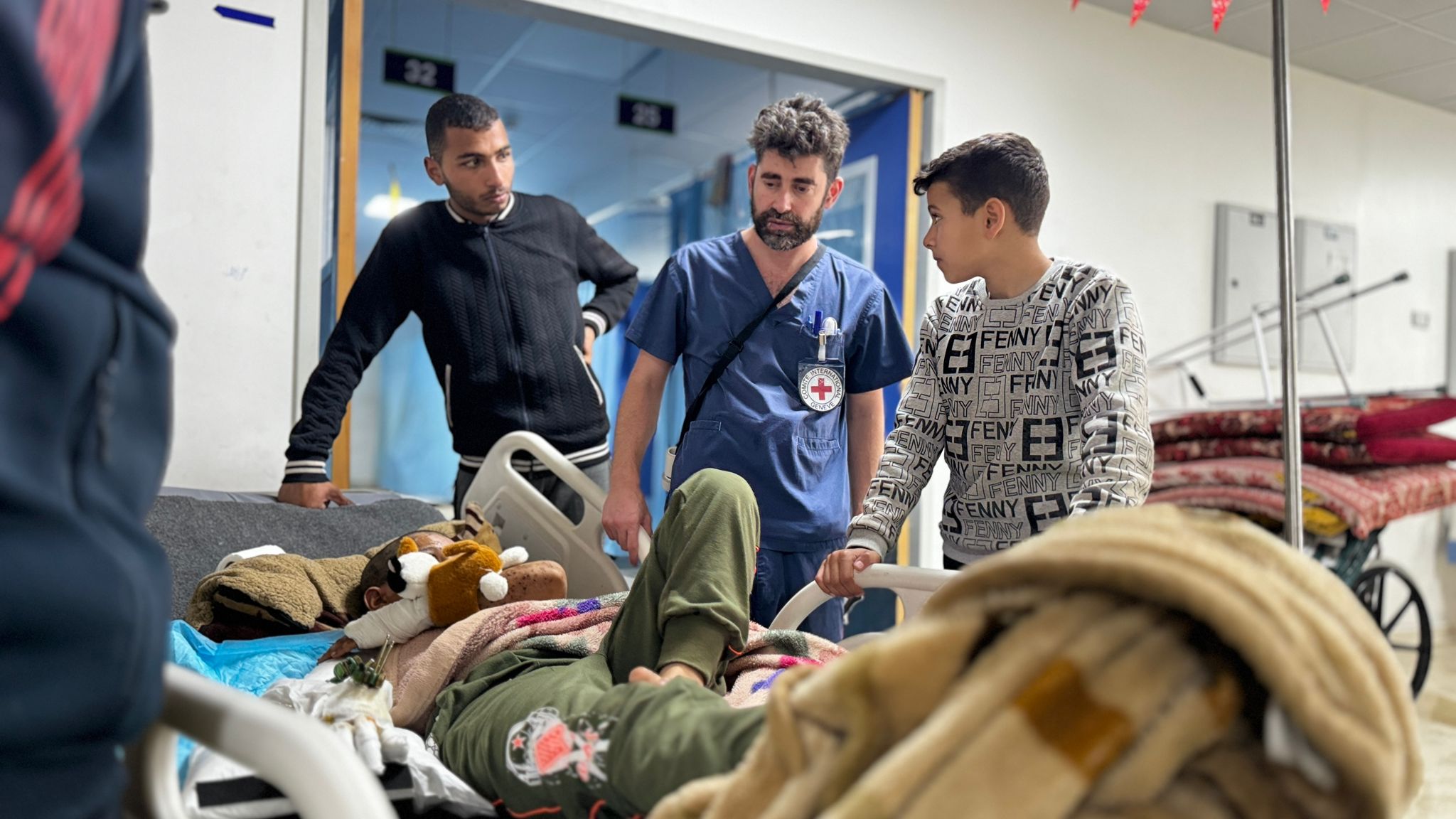

Australian Red Cross and RMIT University have teamed up to develop a simple framework to help businesses include international humanitarian law (IHL) – also known as the laws of war – in their existing risk-management protocols and human rights due diligence processes.
“Integrating these best practice indicators into your company’s way of doing business will enhance your ability to assess and manage the risks associated with international humanitarian law and armed conflict,” says Australian Red Cross legal adviser Fauve Kurnadi. “It will also improve your personnel’s understanding of the legal obligations and protections afforded to them in conflict-affected areas.”
"Just as significantly, it will also help to safeguard the lives and dignity of those communities where your operations and business activities take place."
Businesses operating in conflict-affected areas face unique risks. These were outlined in our recently released practical guide Doing Responsible Business in Armed Conflict, which sought to help businesses identify and navigate their risks, rights and responsibilities in conflict contexts.
Our new framework, Seven Indicators of Corporate Best Practice in International Humanitarian Law, will help businesses address and mitigate these risks through the implementation of international humanitarian law standards. Adherence to this framework will also help businesses demonstrate their commitment to upholding the universally accepted standards of responsible and humane conduct in conflict-affected areas.
The seven indicators framework can:

Red Cross and RMIT have worked together since 2017 to highlight the applicability of international humanitarian law to business operations in conflict-affected areas.
Our consultation with Australia’s corporate sector has found there is more businesses can do to understand and implement international humanitarian law. There is also a growing willingness within the corporate sector, and increasing advocacy from civil society, for businesses to do more in this respect.
Last October, the United Nations Working Group on Business and Human Rights released a report clarifying the practical steps that States and businesses should take to prevent and address business-related human rights abuse in conflict and post-conflict contexts.
In a marked shift away from a focus solely on international human rights law, the report highlighted the importance and relevance of international humanitarian law to businesses. It identified international humanitarian law as the specialist body of law that applies during armed conflict and military occupation and recognised it as a binding legal framework on businesses whose activities are closely linked to an armed conflict.
The UN report urges businesses ‘to allocate resources and attention’ to the relationship between international humanitarian law and business activities in conflict-affected areas.
Some businesses may want to do this through their commitment to the Voluntary Principles on Security and Human Rights; others may choose to respond to the call to conduct ‘enhanced human rights due diligence’ in conflict zones, as recommended by the UN Guiding Principles on Business and Human Rights.
Regardless of the motivation, embedding international humanitarian law in corporate policies and practices is a logical extension of steps already being taken, or that should be taken, to manage risk in conflict contexts – whether it is enhancing human rights due diligence, expanding human rights and security training or revising reporting and non-compliance processes.
We welcome a dialogue with interested companies and stakeholders about the Seven Indicators framework and can arrange consultations and presentations on the topic. Feedback on the framework is also appreciated. Please email fkurnadi@redcross.org.au.
By Fauve Kurnadi and Jonathan Kolieb
Fauve Kurnadi is the Legal Adviser – Academic and Private Sector Engagement in the International Humanitarian Law Program at Australian Red Cross.
Dr Jonathan Kolieb is the Peace and Conflict Lead at RMIT University’s Business and Human Rights Centre and a member of the Australian Red Cross International Humanitarian Law Advisory Committee (Victoria).

Humanitarian aid workers like Australian Red Cross delegate JP Miller rely on international humanitarian law for protection when deploying into conflict zones.
Red Cross pays our respects to the Aboriginal and Torres Strait Islander custodians of the country where we work, and to Elders, past, present and emerging.
Learn about our Reconciliation Action Plan and how we can all make reconciliation real.
This website may contain the images, voices or names of people who have passed away.


© Australian Red Cross 2025. ABN 50 169 561 394
